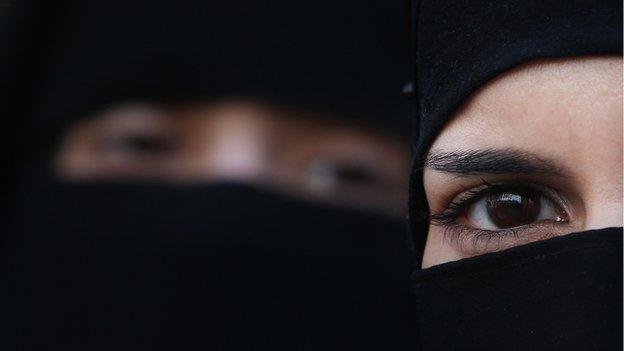'It's about freedom': Ban boosts burkini sales 'by 200%'
- Published
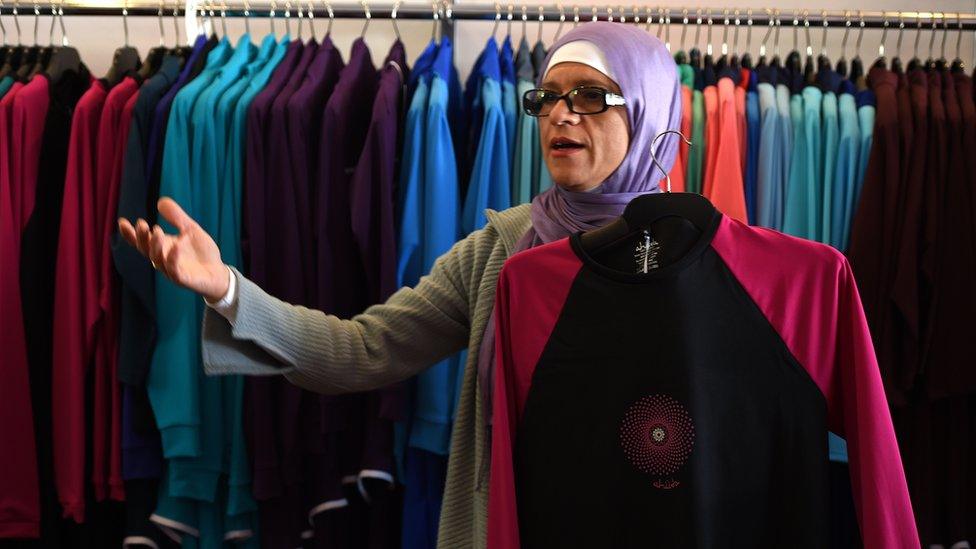
Aheda Zanetti, the Australian designer credited with inventing the burkini, at a swimsuit shop in western Sydney
The Australian woman credited with creating the burkini says bans on the full-bodied Islamic swimsuit in France have boosted sales.
The clothing - which combines "burqa" with "bikini" - leaves only the face, hands and feet on show.
Aheda Zanetti, who claims the trademark on the name burkini and burqini, said online sales were up by 200%
The 48-year-old Sydney woman said the swimsuits represented freedom and healthy living - not oppression.
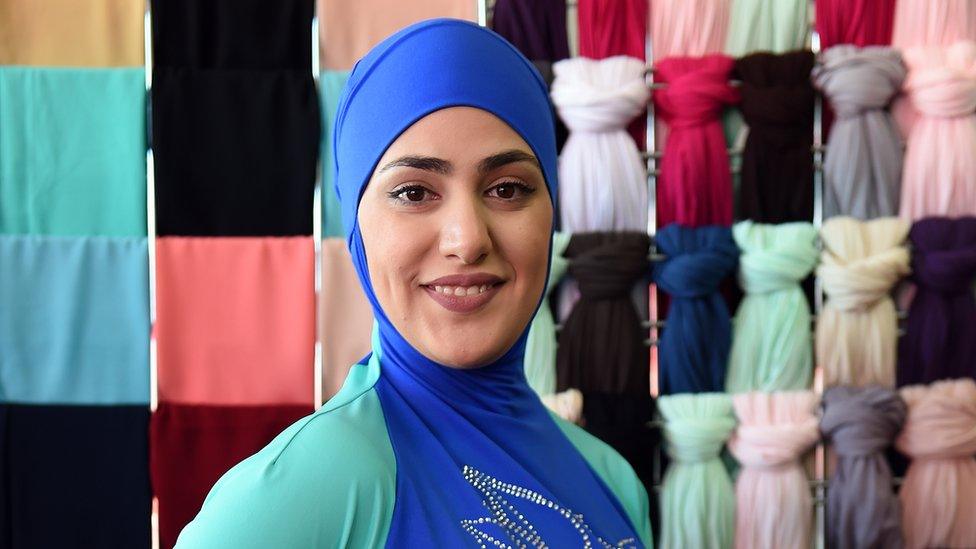
Part bikini, part burqa, the burqini swimsuit has sparked huge controversy in France
"I'm an Aussie chick, I've been here all my life," she said.
"I know what hijab means. I know what veil means. I know what Islam means. And I know who I am."

The mayor of Cannes' ruling
"Access to beaches and for swimming is banned to any person wearing improper clothes that are not respectful of good morals and secularism."
"Beachwear which ostentatiously displays religious affiliation, when France and places of worship are currently the target of terrorist attacks, is liable to create risks of disrupting public order."
The infringement is punishable with a fine of €38 (£33)
The ban remains in place until 31 August 2016

Ms Zanetti said the original intention behind the garment was to allow Muslim women to participate in the Australian beach lifestyle.
"I wanted my girls to grow up to have that freedom of choice," she said.
"I don't care if they want to have a bikini. It's their choice.
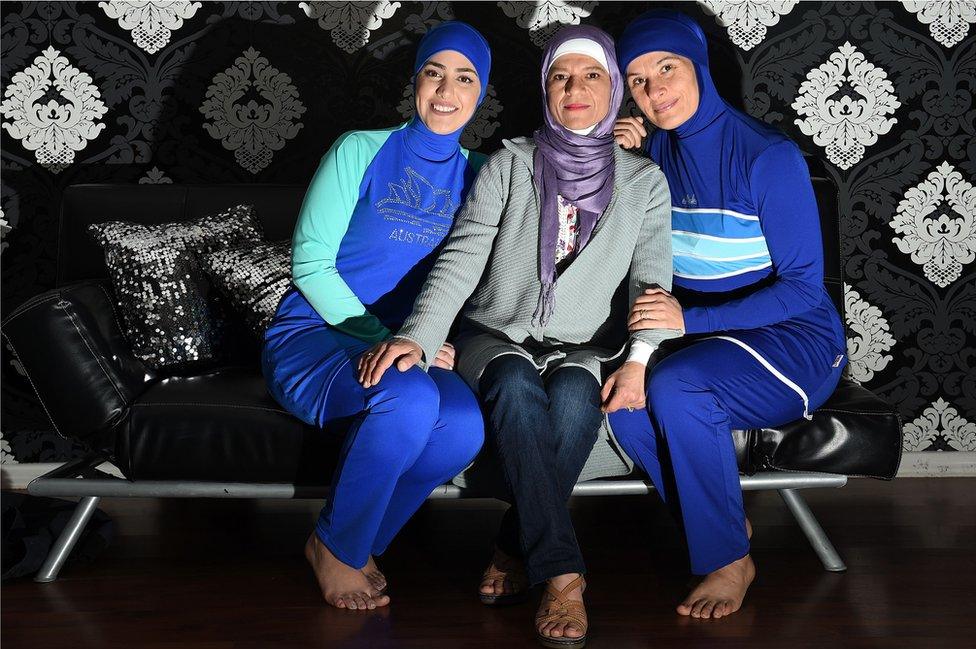
Islamic swimsuits were banned in a ruling by the Cannes mayor earlier this month
"No man in this entire world can tell us what to wear or what not to wear."
She said the design was partially inspired by reports of France banning the hijab in schools to discourage the growth of Islam.
Authorities in several French towns have banned the garment, arguing it defies laws on secularism.
The debate is particularly sensitive in France after a series of deadly attacks by Islamic extremists.
- Published16 August 2016
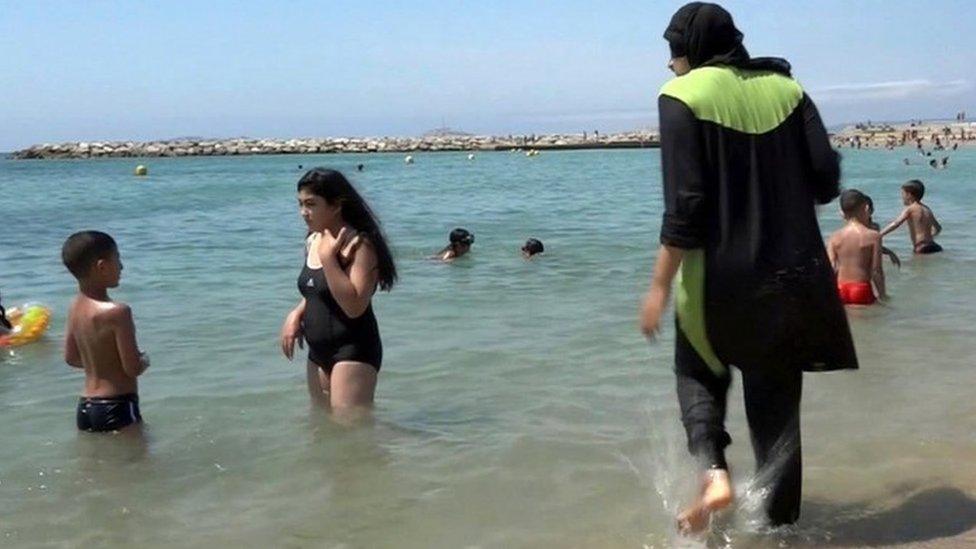
- Published13 August 2016
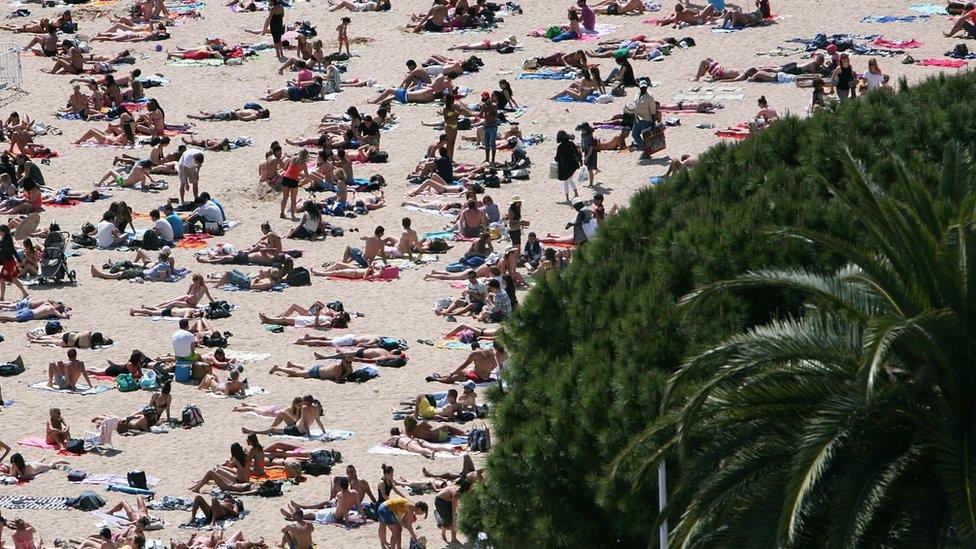
- Published20 August 2016
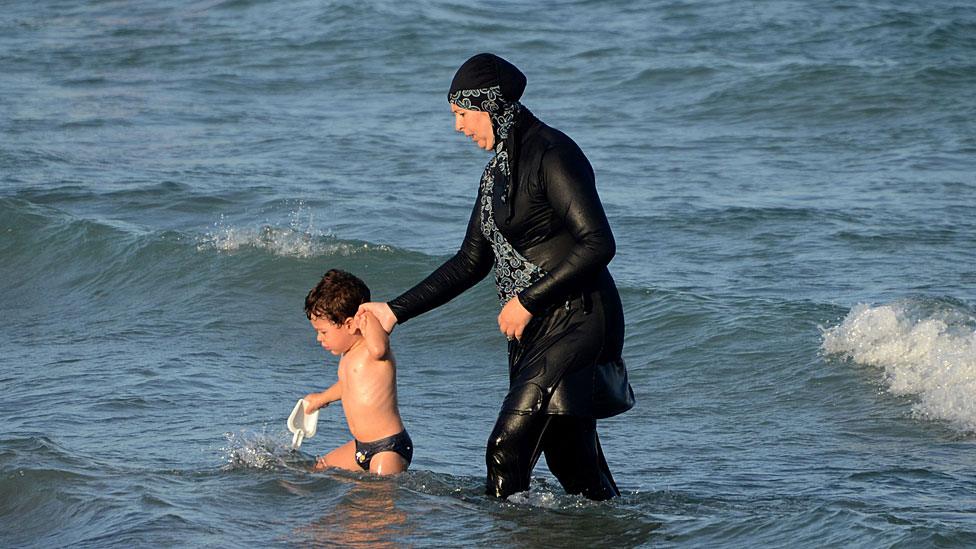
- Published31 May 2018
